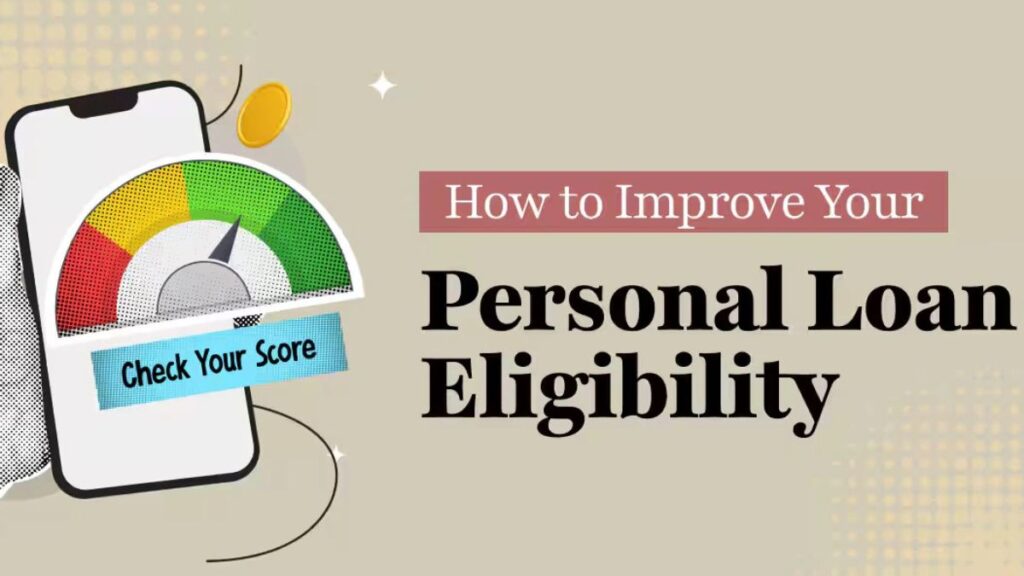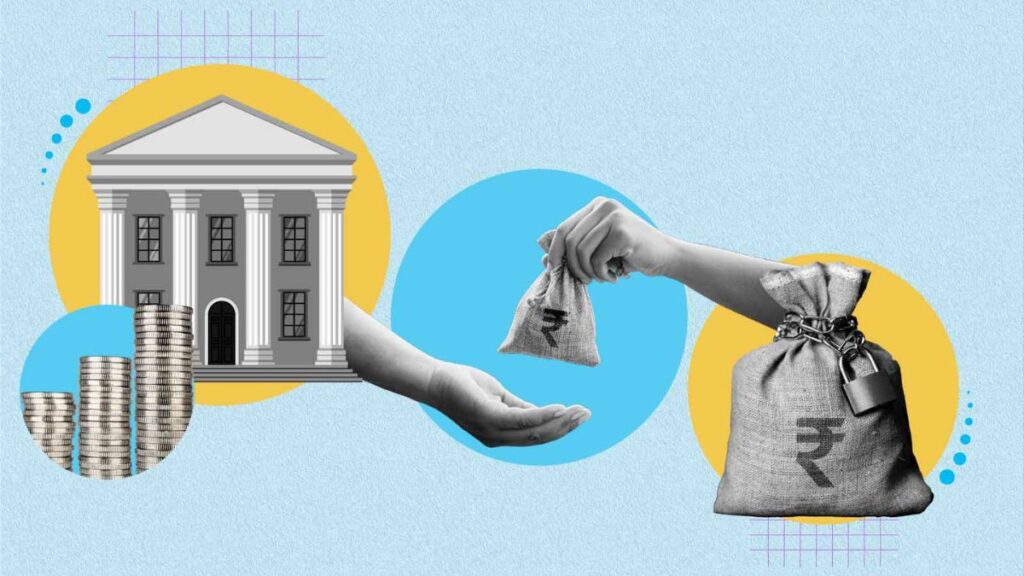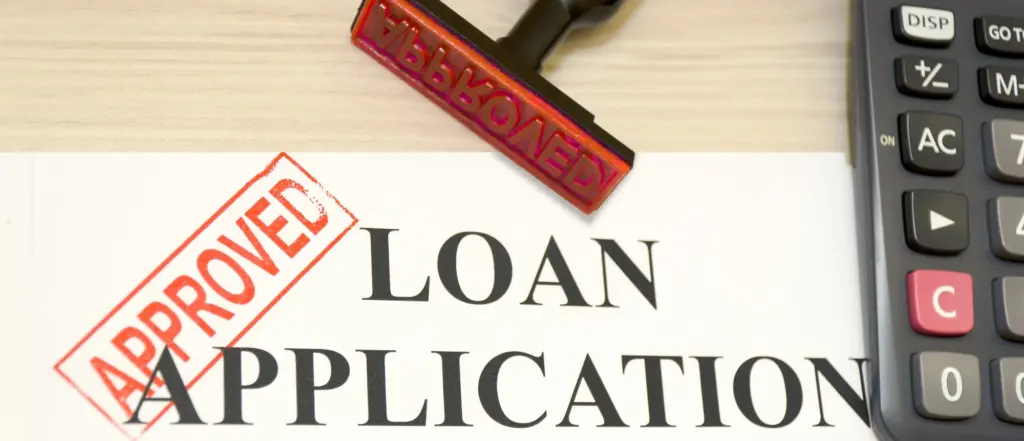Getting a loan approved is not just about filling out an application; it’s about presenting yourself as a trustworthy borrower to the lender. Whether you’re applying for a personal loan, home loan, car loan, or education loan, following a systematic process will greatly improve your chances of approval.
Here’s a clear step-by-step process to help you get your loan approved quickly in 2025.
Key Takeaways
- A credit score of 750+ dramatically increases approval chances.
- Match your loan type and amount with your repayment capacity.
- Compare lenders for the best deal, not just the fastest approval.
- Maintain healthy bank statements before applying.
- Respond quickly to any queries to speed up approval.
Understand Your Loan Requirement

Before you apply, decide:
- Purpose of the loan: (e.g., buying a car, education, emergency needs)
- Loan amount needed: Borrow only what you can repay comfortably.
- Type of loan: Secured (home, gold, FD-backed) or unsecured (personal, credit card).
Tip: Applying for the right loan type improves your approval chances because lenders have specific criteria for each.
Check Your Credit Score
- Lenders use your credit score (usually CIBIL in India) to measure your creditworthiness.
- Score range:
- 750+ = Excellent (High approval probability)
- 650–749 = Average (Possible approval, but higher interest rates)
- Below 650 = Low (Harder to get approval)
Action:
- Check your credit report for free once a year.
- Correct any errors in your report before applying.
Determine Your Eligibility
Lenders have different criteria:
- Minimum income requirement (varies by loan type).
- Employment stability (at least 6–12 months in current job).
- Age limit (usually 21–60 for salaried, 21–65 for self-employed).
- Debt-to-Income (DTI) ratio — ideally below 40%.
Tip: Use online eligibility calculators to see if you qualify before applying.
Prepare Required Documents
Typical documents include:
- Identity proof (Aadhaar, PAN, passport)
- Address proof (utility bill, rental agreement)
- Income proof (salary slips, ITR, bank statements)
- Employment proof (ID card, appointment letter)
- For secured loans: Collateral documents (property papers, gold certificate, FD receipt)
Tip: Keep soft copies (PDF) ready for quick online applications.
Compare Lenders and Offers

Don’t rush into the first offer.
- Compare interest rates, processing fees, prepayment charges.
- Check for special offers (festive discounts, zero processing fees).
- Read reviews of lender’s service quality.
Action: Use aggregator websites to see side-by-side loan options.
Choose the Right Loan Tenure
- Shorter tenure: Higher EMI, lower interest paid overall.
- Longer tenure: Lower EMI, but higher total interest.
Tip: Choose a tenure where your EMI is 30–40% of your monthly income.
Maintain a Healthy Bank Balance
Lenders often check your last 3–6 months’ bank statements.
- Avoid bounced cheques, overdrafts, or sudden cash withdrawals.
- Maintain a minimum average balance to show stability.
Fill Out the Application Accurately
- Provide correct details (income, address, employment).
- Double-check spelling errors or mismatched details.
- Inconsistent information can lead to instant rejection.
Respond Promptly to Lender Queries
- If a lender asks for extra documents, submit them quickly.
- Delays in response can slow approval or cause cancellation.
Avoid Multiple Applications at Once
- Applying to many lenders in a short period lowers your credit score (hard inquiries).
- Choose 2–3 shortlisted lenders instead of 10 random ones.
Prepare for Verification
- Some lenders conduct physical verification of your address or workplace.
- Be available and cooperative during this step.
Review Loan Agreement Before Signing
- Read all terms carefully:
- Interest calculation method
- Prepayment & foreclosure charges
- Late payment penalties
- Ask questions if anything is unclear.
Quick Checklist Before Applying
Loan type & purpose decided
Credit score checked & improved if needed
All documents ready
Lender comparison done
Tenure chosen based on repayment ability
Common Mistakes to Avoid
Applying without checking eligibility
Providing incorrect or incomplete documents
Ignoring credit score improvement before applying
Overestimating repayment capacity
Also this: http://Best Loan Options for Beginners in 2025
Conclusion
Loan approval is not luck — it’s preparation. By understanding your eligibility, improving your credit score, organizing documents, and choosing the right lender, you can significantly boost your chances of getting approved in 2025. A well-planned application also ensures you get the best interest rates and repayment terms.
FAQs
1. What is the minimum credit score needed for loan approval?
Most lenders in India prefer a score of 750 or above for quick approval. However, some may approve loans with scores between 650–749 at higher interest rates.
2. How can I improve my credit score before applying for a loan?
- Pay EMIs and credit card bills on time
- Reduce outstanding debts
- Avoid multiple loan applications at once
- Check and correct any errors in your credit report
3. Can I get a loan without income proof?
Yes, but usually for secured loans like gold loans or loans against fixed deposits. Unsecured loans typically require income proof.
4. How long does it take for a loan to get approved?
- Personal loans: 24–72 hours (online process)
- Home loans: 5–15 working days
- Car loans: 2–5 days
Timelines vary by lender and documentation completeness.
5. Will applying to multiple lenders improve my chances?
No. Multiple applications in a short time create hard inquiries, lowering your credit score and reducing approval chances.
6. Do lenders check my bank statements?
Yes. Lenders review your last 3–6 months’ statements to see your spending habits, income stability, and if you have a healthy balance.
7. What is the Debt-to-Income (DTI) ratio and why is it important?
It’s the percentage of your income that goes toward loan repayments. A DTI below 40% is ideal for loan approval.
8. Can I prepay my loan anytime?
Yes, but some lenders charge prepayment or foreclosure fees. Always check your loan agreement before prepaying.
9. Do I need collateral for every loan?
No. Only secured loans (home, gold, loan against property) require collateral. Personal loans are unsecured and don’t require it.
10. What’s the biggest reason loans get rejected?
The most common reasons are:
- Low credit score
- Unstable income or job history
- High existing debt
- Incorrect or incomplete documents


